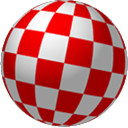AmigaOS Alternatives

AmigaOS
AmigaOS is the proprietary native operating system of the Amiga and AmigaOne personal computers, introduced with the launch of the first Amiga, the Amiga 1000, in 1985.
The most recent release is AmigaOS 4.1, developed by Hyperion Entertainment, which received in 2009 by Amiga Inc. an exclusive, perpetual, worldwide license to AmigaOS 3.1 in order to develop and market AmigaOS 4 and subsequent versions.
AmigaOS is a single-user operating system based on a preemptive multitasking kernel, called Exec. It includes an abstraction of the Amiga's hardware, a disk operating system called AmigaDOS, a windowing system API called Intuition and a desktop file manager called Workbench.
A command-line interface, called AmigaShell, is also integrated into the system, though it also is entirely window based. The CLI and Workbench components share the same privileges. Notably, AmigaOS lacks any built-in memory protection.
AmigaOS is formed from two parts: a firmware component called Kickstart and a software portion usually referred to as Workbench. Up until AmigaOS 3.1, matching versions of Kickstart and Workbench were typically released together. However, since AmigaOS 3.5, the first release after Commodore's demise, only the software component has been updated and the role of Kickstart has been diminished somewhat. Firmware updates may still be applied by patching at system boot.
In 2006 AmigaOS 4.0 was rewritten to become fully PowerPC compatible.
The screens became draggable in any direction, drag and drop of Workbench icons between different screens was possible, new version of Amidock, TrueType/OpenType fonts and movie player with DivX and MPEG-4 support were added.
In AmigaOS 4.1, a new Start-up preferences feature was added which replaced WBStartup drawer. Additional enhancements were a new icon set to complement higher screen resolutions, new window themes including drop shadows, AmiDock with true transparency, scalable icons and AmigaOS with auto-update feature.
Best AmigaOS Alternatives
Looking for some programs similar to AmigaOS? Here are the top-recommended programs we found. Let's take a look if there's anything out there that helps you on whatever platform you're using.

Ubuntu
FreeOpen SourceWindowsLinuxWindows SUbuntu is a Debian Linux-based open source operating system for desktop computers.
Features:
- Customizable
- Based on Debian
- OTA Updates
- Package Manager
- Support for Unicode
- APT package manager
- Based on Debian
- Linux-based
- Operating system
- Security & Privacy
- Support for .deb files

Debian
FreeOpen SourceWindowsLinuxWindows SBSDSelf-HostedWHAT is Debian? The Debian Project is an association of individuals who have made common cause to create a free operating system. This operating system that we have...
Features:
- Rolling release
- Stability
- Customizable
- Based on Debian
- Package Manager
- Flexible and powerful
- Low memory usage
- Operating system
- Package Control
- Scientific Calculator
- Security & Privacy
- Transmission bitTorrent client
- UI customization

Linux Mint
FreeOpen SourceLinuxLinux Mint is one of the most popular desktop Linux distributions and used by millions of people. The purpose of Linux Mint is to produce a modern, elegant and...
Features:
- Customizable
- Windows-like
- Ad-free
- Out Of The Box
- Based on Ubuntu
- Built-in File Manager
- Community based
- Based on Debian
- Night mode/Dark Theme
- Support for Nvidia drivers
- Operating system
- Unix-like
- Program Launchers
- Cinnamon Desktop
- Based on Debian
- Extensible window manager
- FOSS
- Multiple languages
- No Tracking
- Privacy focused
- Security & Privacy
- XFCE support

Arch Linux
FreeOpen SourceLinuxArch Linux is an independently developed, i686- and x86_64-optimised GNU/Linux distribution targeted at competent Linux users. It uses pacman, its home-grown package...
Features:
- Customizable
- Rolling release
- Arch User Repository
- Lightweight
- Community based
- Minimalistic
- Package Manager
- Wiki documentation
- ARM support
- Bleeding edge
- For geek
- Linux-based
- Operating system
- Package Control
- UI customization

macOS
FreeMacmacOS is a Unix-based operating system, developed and marketed by Apple Inc. It is designed to run on Macintosh computers, having been pre-installed on all Macs since...
Features:
- Unix-like
- Apps with Chromecast Support
- Linux-based
- Operating system
- Privacy focused
- QuickLook File Preview
- Spotlight
- Voice Commands

Fedora
FreeOpen SourceLinuxThe Fedora Project is an openly-developed project designed by Red Hat Enterprise Linux , open for general participation, led by a meritocracy, following a set of project objectives.
Features:
- An in-built GUI
- Key rebinding
- Linux-based
- Multiple languages
- Operating system
- Out Of The Box
- Separated workspaces

Windows 10
CommercialWindowsWindows 10 is a personal computer operating system released by Microsoft as part of the Windows NT family of operating systems To encourage its adoption, Microsoft...
Features:
- An in-built GUI
- Onedrive integration
- Operating system
- Tablet support
- Transactional SMS
- Xbox Streaming

elementary OS
FreeOpen SourceLinuxelementary OS is a free, fast and aesthetically pleasing operating system based on Ubuntu .
Features:
- macOS-like
- Flatpak
- Out Of The Box
- Configurable
- Debian package compatible
- FOSS
- Distraction-free UI
- Operating system
- Based on Ubuntu

Xubuntu
FreeOpen SourceLinuxXubuntu is an elegant and easy-to-use operating system. Xubuntu comes with Xfce, which is a stable, light and configurable desktop environment.
Features:
- Lightweight
- Based on Debian
- Operating system
- Based on Ubuntu
- XFCE support

Manjaro Linux
FreeOpen SourceLinuxArch LinuxManjaro is a user-friendly Linux distribution based on the independently developed Arch operating system.
Features:
- Rolling release
- Based on Arch Linux
- ARM support
- Community based
- Customizable
- Lightweight
- Stability
- Arch User Repository
- Configurable
- Linux-based
- Support for Nvidia drivers
- Operating system
- Out Of The Box
- Plasma based
- Rolling release
- Security focused
- X86/x64 Compatibility
Upvote Comparison
Interest Trends
AmigaOS Reviews
Add your reviews & share your experience when using AmigaOS to the world. Your opinion will be useful to others who are looking for the best AmigaOS alternatives.